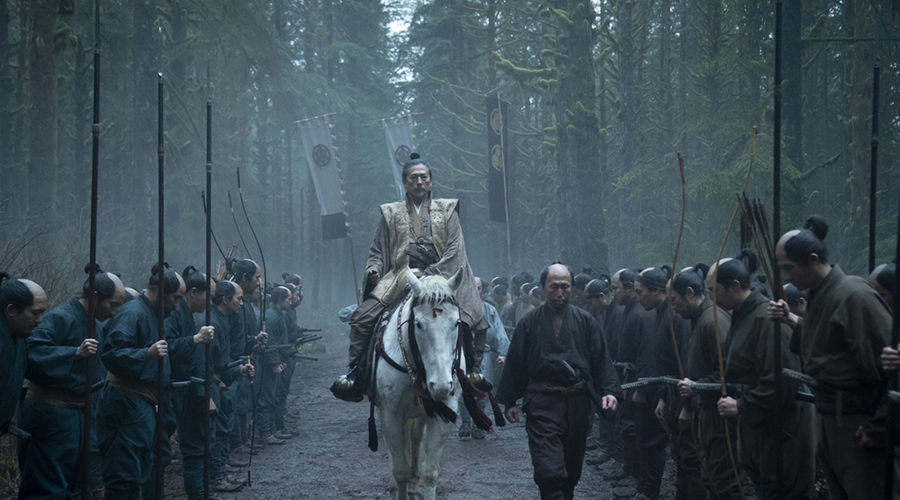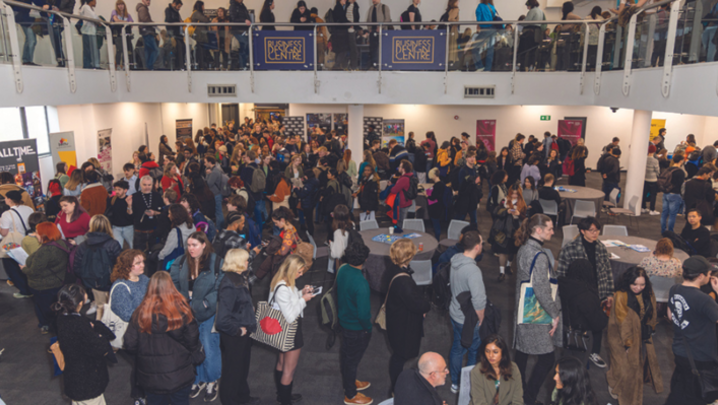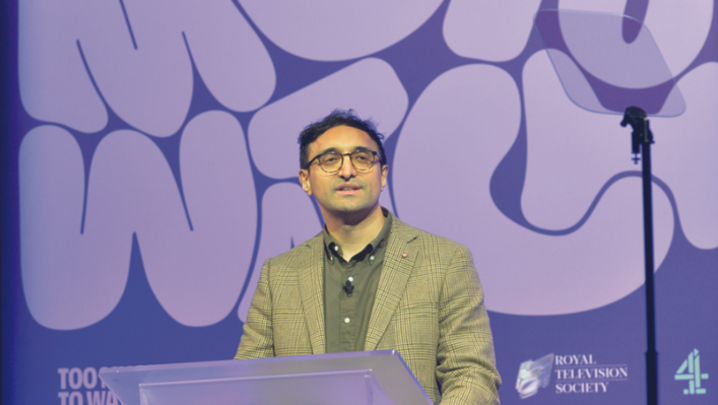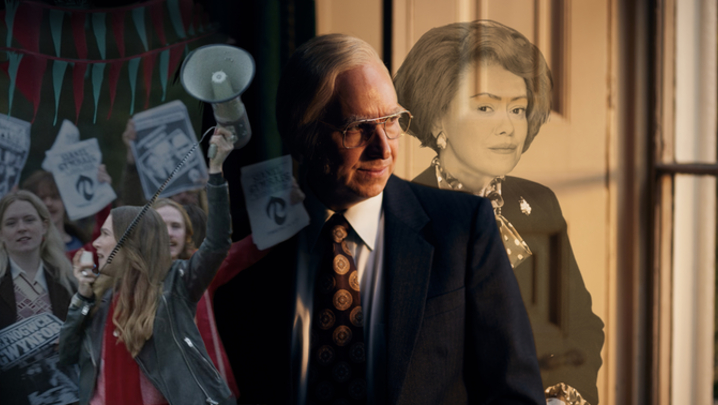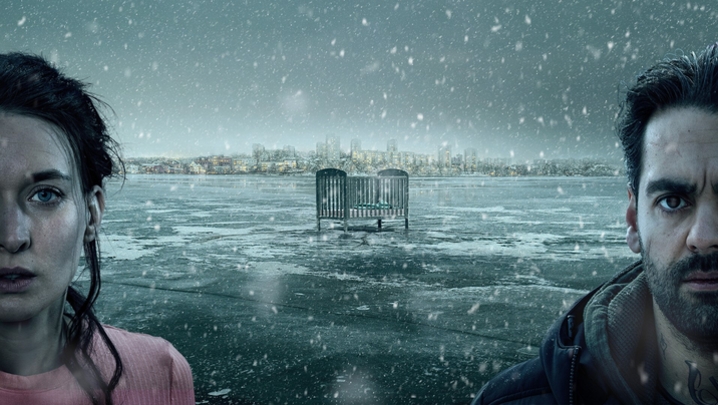Disney+’s Shōgun has won rave reviews but it was Squid Game that sparked the rise and rise of subtitled TV drama, says Mark Lawson
You may not expect a piece in Television to begin with East Asian geopolitics, but trust me. Diplomatic relations between Japan and South Korea, two pro-American democracies in the region, were strained for a long time due to past wars and economic exploitation. Those tensions were reflected in Pachinko (Apple TV+, 2022), a saga about four generations of unhappy Korean emigrants to Japan.
However, in the past two years, the countries have become closer, a rapprochement dramatised in Eye Love You (Netflix, 2024), in which a Japanese woman, whose love life is ruined by her mind-reading ability, seduces a South Korean man because the language barrier will prevent her knowing his thoughts. This is the first Japanese show to have a co-lead actor from South Korea, and it has been a success, with appropriate subtitles, in both countries.
The Indo-Pacific love-in of Eye Love You could also be seen to symbolise one of the most striking and surprising developments in recent television – the huge cultural and economic power of subtitled TV. The strength of this trend is shown by the international success of Shōgun (made by FX and streamed on Disney+), the story of a European sailor who becomes a samurai in the early 17th century. While Shōgun is an American-made Japanese-language series, this content revolution began in South Korea.
In 2019, Netflix’s Seoul office, an outpost opened the previous year, had a commissioning decision to make. The US streamer had so much cash and content that green lighting was easier than elsewhere. Executives felt able to commit $21m for a show called 오징어 게임. The modest ambition was to build subscriptions in East Asia.
In the Netflix business model, though, most new content drops everywhere at once. So, from 17 September 2021, this parochial purchase, subtitled Squid Game, became the streamer’s most watched programme in 94 countries, including the UK.
That global popularity was a tribute to the pan-national appeal of Hwang Dong-hyuk’s plot. In the dystopian drama, 456 people with cashflow problems risk death, with the last person standing winning a multi-billion-won prize. The production design of the lethal challenges – including the orange-smocked doll with the rotating-head, who sealed the fate of so many contestants – also helped.
But the greatest significance of Squid Game was that it completely contradicted a TV tenet. This held that the tired eyes of busy viewers would no longer read subtitles, except in arthouse cinemas and on niche TV channels, and then only in mainland Europe.
The Economist reported that in its first 14 days, Squid Game had proved 100 times more popular than the average Netflix release. As the magazine also noted, this magnified a recent trend – Money Heist, from Spain, and Dark, a German series, had matched or bettered the English-language blockbuster The Crown. Yet these ratings contradicted movie data: while Squid Game was in pre-production, foreign cinema grossed 2.2% of UK box office and 1.1% in the US – despite 45% and 19%, respectively, of releases being subtitled.
Although it was Squid Game that identified this extraordinary transformation, and Shōgun that confirmed it, these were the consequences of a longer story played out over the past 20 years, in which the BBC and Channel 4 played a significant part.
During the final two decades of the last century and the first of this, dialogue that viewers had to read rather than hear became controversial. A common complaint in correspondence columns was that subtitles were hard work, required fumbling for spectacles and were impossible to follow when (generally) white text scrolled across snow or clouds.
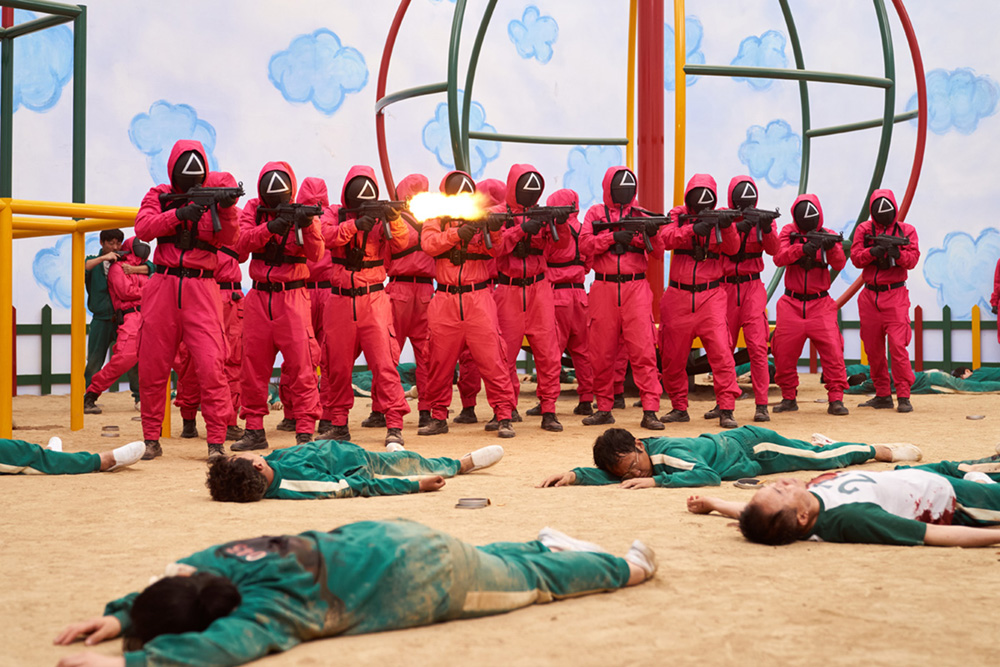
Even Channel 4, which included in its remit the internationalising of TV, retreated somewhat in the face of these complaints, and the BBC more so. A regular lament of the great Observer film critic Philip French (1933-2015) in his later years was that foreign-language movies, a formative influence on him and other post-war British film-goers, had become a rarity on television.
Original TV content, though, was heading the other way. BBC Four, set up in 2002 with an emphasis more on culture than ratings, deliberately shopped overseas. This was partly thrift – not many networks were competing for these pieces – but it brought glorious imports. These included a police series from France, Spiral (shown in the UK from 2006), and two Danish shows: crime drama The Killing (aired in the UK from 2011) and Borgen (shown in the UK from 2012), which can plausibly claim to be a Nordic political equivalent to The West Wing.
Confirming the fourth BBC channel’s frequent fate of having good ideas for other people, the fourth series of The Bridge, a Swedish-Danish cop show, was promoted to BBC Two in 2018; emblematically, The Killing and Borgen can now be found not on BBC iPlayer but on Disney+ and Netflix, respectively.
Channel 4 again began to trust viewers to find their glasses with the launch, in 2016, of the hugely influential Walter Presents brand. It used selected network episodes to nudge viewers to the streaming service on which Walter Iuzzolino, an omniscient Italian TV producer, curated choice examples of world television.
Several of his early hits were Scandi crime stories, and the increasing receptiveness of UK viewers to these read-and-see pieces surely reflected the bestselling success of so-called Scandi noir crime novels by Henning Mankell, Camilla Läckberg and Jo Nesbø. The books were in translation, but seem to have encouraged TV audiences to taste them neat.
Tellingly, some viewers preferred the subtitled Swedish adaptations of Mankell’s Wallander books on BBC Four to the Kenneth Branagh-led English language versions on BBC One.
Another boon for foreign-language content was that DVDs and then streamers employed technologies that encouraged more efficient subtitles; some UK and US viewers even made use of the English closed captioning (designed to help those who can’t hear the audio) for strongly idiomatic shows such as The Wire and The Sopranos.
But if those developments made viewers more accepting of reading dialogue on screen, the biggest driver of subtitling has been a growing sensitivity to cultural appropriation and offence. Where it was once standard for Germans or other foreign nationals in UK and US dramas to speak accented English, this is now rightly seen as offensive or colonial.
The logical next step from the trend in English shows for French, Italian, Indian, Arab and other characters to have their language captioned when addressing a fellow national is that shows from those cultures should be entirely subtitled.
Shōgun is a prime example. James Clavell’s 1975 novel was first televised in a 1980 NBC mini-series. While featuring many Japanese actors and some of their native language, it also required them to speak English (learned phonetically and apparently overdubbed if judged inaccurate). The cast included the Hertfordshire-born Michael Hordern as a Spanish priest.
Disney may have worried about the ratings consequences for its Shōgun of not being able to appease the English-speaking market in that way. But, post-Squid Game, it doesn’t matter.
The trend is not constant. Netflix’s real-life (but not real-death) gameshow spin-off, Squid Game: The Challenge, which won the Entertainment category at this years RTS Programme Awards, is UK-made and English-spoken. The Netflix revenge drama Beef, shortlisted in the International category at the same ceremony has a Korean-American showrunner, Lee Sung Jin, and East Asian central characters but the dialogue is American English.
That is partly because the story is set in the US, but what is remarkable – and would have seemed impossible until very recently – is that, if Squid Game: The Challenge and Beef had been subtitled, they might still have been international hits. In a good way, the writing, for a once seemingly dying convention, is on the screen.

